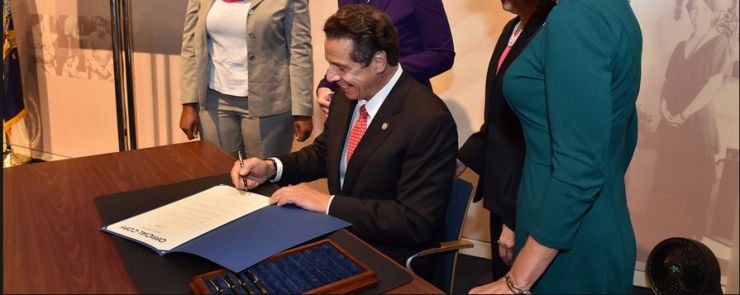NYS Gov. Cuomo Signs Bill to Help Protect Direct Care Workers
December 1, 2015
Just days before Thanksgiving, New York State Gov. Andrew Cuomo signed into law a bill that makes assaults on any workers doing direct care in hospitals, nursing homes and clinics a Class D felony, punishable by up to seven years in prison.
The provision had already applied to nurses, emergency medical personnel and dozens of titles in law enforcement, traffic control, fire fighting and other professions.
The signing of the bill came after months of lobbying and testimony from 1199SEIU direct care workers. The Union also won broad support from legislators, the healthcare community and the trade union movement.
“The risk of assault or other violent situations should be no less important because of their pay grade,” reads a statement of support from the NYS AFL-CIO. It continued, “And as such, all direct care health workers should be afforded the same protection as other titles in similar situations. The bill will have the effect of deterring violence, lowering workers’ compensation costs for employers and most importantly improving the ability of these employers to provide higher quality care.”
Health-care workers experience more nonfatal workplace violence than any other profession by a wide margin. Attacks on them account for almost 70 percent of all nonfatal workplace assaults that cause the loss of workdays, according to data from the Bureau of Labor Statistics.
1199SEIU members in testimony in support of the bill cited attacks by patients and family members of patients both at the workplace and in the streets.
Reginald Taylor, a psychiatric nursing assistant at Syosset Hospital on Long Island, NY, notes that every worker in his department has been out on workers’ compensation, many the victims of attacks. He says that he is ecstatic about the passage of the bill, but warns that much is still needed.
“It’s important that patients are protected,” he says. “But we need protection, too. Adequate training and adequate staffing are also important. The workplace protection bill is a good start.”


